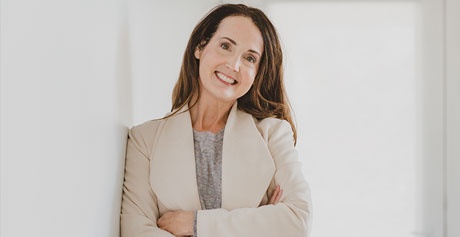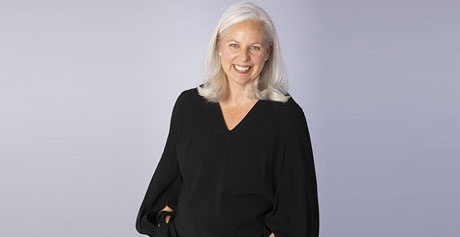She’s a Professor, Author, Speaker & Independent Consultant & Facilitator to Law Firms. Our Exclusive Interview with University of Miami Law Professor Michele DeStefano
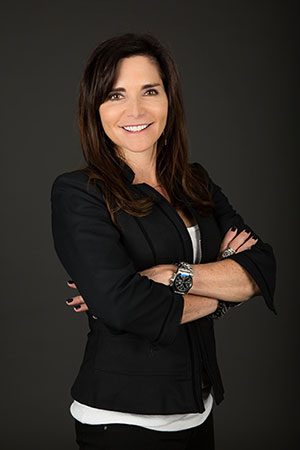 Recently recognized as a Legal Rebel by the ABA, Michele is a Professor at the University of Miami School of law and the founder of LawWithoutWalls, a multi-disciplinary, international think-tank of over 1000 lawyers, business professionals, entrepreneurs, and law and business students who collaborate to create innovations at the intersection of law, business, and technology. She is also the co-founder and co-editor of the Compliance Elliance Journal, an open access e-journal that publishes engaging authors' works about cutting edge issues in compliance and ethics. Through her company MoveLaw, Michele runs bespoke, experiential learning workshops and programs that have a human-centered design approach and are designed to transform how lawyers collaborate with their clients to creatively solve problems and to create culture change.
Michele writes about the growing intersections between law, business, and legal innovation. She is currently conducting research on Heads of Innovation at law firms and General Counsels at international corporations for her upcoming book, Legal Upheaval: A Guide to Creativity, Collaboration, and Innovation in Law. Michele speaks and serves as a consultant at law firms, legal departments, and legal startups on: Innovation, Teaming, Collaboration, Creative Problem Solving, Culture Creation, Compliance, and Technology.
In addition to teaching law at the University of Miami, she is Guest Faculty in Harvard Law School's Executive Education program and at IE Law School. Michele received her J.D., magna cum laude, from Harvard Law School and her B.A., magna cum laude, from Dartmouth College.
Recently recognized as a Legal Rebel by the ABA, Michele is a Professor at the University of Miami School of law and the founder of LawWithoutWalls, a multi-disciplinary, international think-tank of over 1000 lawyers, business professionals, entrepreneurs, and law and business students who collaborate to create innovations at the intersection of law, business, and technology. She is also the co-founder and co-editor of the Compliance Elliance Journal, an open access e-journal that publishes engaging authors' works about cutting edge issues in compliance and ethics. Through her company MoveLaw, Michele runs bespoke, experiential learning workshops and programs that have a human-centered design approach and are designed to transform how lawyers collaborate with their clients to creatively solve problems and to create culture change.
Michele writes about the growing intersections between law, business, and legal innovation. She is currently conducting research on Heads of Innovation at law firms and General Counsels at international corporations for her upcoming book, Legal Upheaval: A Guide to Creativity, Collaboration, and Innovation in Law. Michele speaks and serves as a consultant at law firms, legal departments, and legal startups on: Innovation, Teaming, Collaboration, Creative Problem Solving, Culture Creation, Compliance, and Technology.
In addition to teaching law at the University of Miami, she is Guest Faculty in Harvard Law School's Executive Education program and at IE Law School. Michele received her J.D., magna cum laude, from Harvard Law School and her B.A., magna cum laude, from Dartmouth College.
Harvard Law School is a Professor of Law at the University of Miami and Guest Faculty at Harvard Law School's Executive Education Program and at IE School of Law. She is the founder of Law Without Walls and MOVELΔW
Q: What was your first job? And how did it shape or impact you?
MD: My very first paying job was as a mini-magician. At 12 years old, I would attend birthday parties and do magic tricks for young kids. The first time I successfully pulled a pigeon out of a hat and saw that boy with his arms crossed in disbelief change face and say “Ohhhh” and smile, I learned my calling in life— and that is motivating people to change how they see the world, think about the world, and how they behave. So, after graduating from Dartmouth college, I did what any mini-magician would do. I went into advertising. What better way to try to change the way people see, think and behave than via advertising? I worked at Leo Burnett for four years and then I worked in marketing at Levi Strauss and Co for about 3 1/2 four years. People often ask me why in the world I would move from marketing to law (as if they are very different). I say I did it because I think marketing and law are very similar. As a marketer ,your job is to do a lot of research about people (consumers), about how they behave, why they behave the way they do, what they believe about your products or services and then develop strategies to try to convince them to think and behave differently. For lawyers and especially law professors, this is our job as well—except it’s about ethics and principals and the rule of law instead of cereal or jeans.
Q: You have a busy life; a Professor of Law at the University of Miami, Author, Speaker, Independent Consultant and Founder of LawWithoutWalls … a multi-disciplinary, international think-tank of over 1000 lawyers, business professionals, entrepreneurs. Can you share with our audience what led to LawWithoutWalls?
MD: Like so many new products, businesses, and services LawWithoutWalls was born out of frustration. I started it because I was frustrated with all the walls and hierarchies in the law marketplace and in legal education. I wanted to develop something that was more than a class, more than a conference, more than a program. I wanted to develop something that broke down the walls between law and business, between legal education and practice, between schools of different rank, between professors and students, between countries and cultures. I wanted to build something that was multidisciplinary and that focused on changing how lawyers collaborated and built relationships and that taught the skills and mindsets that law schools don't focus on like empathy and self-awareness, and humility and cultural competency, leadership, collaboration and inclusion—not to mention project management, technology and business acumen. I can’t believe that over 10 years ago, we were a part-virtual program and people thought I was crazy. Today, almost everyone is working in a virtual or part-virtual world.
Q: Tell us about the book you wrote, Legal Upheaval.
MD: In the past 10 years, there's been a huge call by clients for lawyers to innovate, but it has been a vague call. No one seemed to know what clients meant by “innovate”. So, I set out to find out. I conducted over 100 interviews of law firm lawyers, inhouse counsel, CEOs, heads of innovation etc. And what I discovered was that the call to innovate is really a call for a transformation in how lawyers provide legal services—not what services they provide. It's an all for “service transformation” in disguise. What everyone really wants from us (i.e., lawyers) is to collaborate and communicate the way an innovator does e.g., with what Clayton Christian calls the DNA of an innovator. That’s what LawWithoutWalls is designed to do for participants (students, mentors, team leaders, and coaches): hone the mindset, skillset, and behaviors of an innovator. So, my mission in writing Legal Upheaval was to try to convince all legal professionals whether (their business model was broken or not) to try their hand at honing the mindset and skillset and behaviors of an innovator. This is because, in doing so, I believe it enhances their ability to delight their clients and collaborate with people towards more creative solutions to problems. It also makes us (lawyers) more likeable.
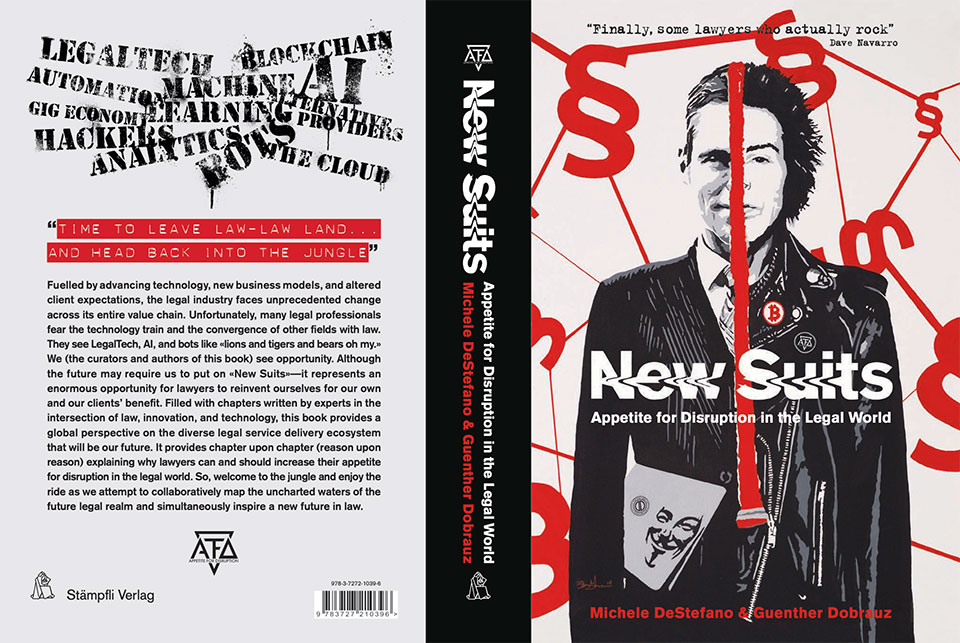
Q: What are the best practices you have employed to build a successful career?
MD: I have three best practices: The first best practice is I say “yes” to almost everything. Now, I realize that could be problematic. Studies on the ‘top qualities of leaders’ point out that knowing how to say “no”, is a really important quality. So, I guess my best practice might also be my worst practice. Second, I ask for forgiveness later, meaning I don't ask for permission before I do things. I act and then if needed, I ask for forgiveness afterwards. And my third best practice is (I bet you already guessed it): to forgive fast and often.
Q: Were there moments in your career that were pivotal to getting where you are today?
MD: The most pivotal moment in my career occurred in Spring of 2006 when my former Harvard Law professor, David Wilkins, asked me out to lunch. My third baby was about 7 months old at the time. I thought we were just catching up but instead he offered me a job as the Associate Research Director of his Center of the Legal Profession at Harvard Law School. And I immediately said “yes!”. And it was the best “yes” I have made because that job (eventually) enabled me to secure a position as a Climenko Fellow at Harvard Law School (which is designed to help wanna-be-professors land a job at a law school). So that moment was pivotal, but it wasn’t fortuitous. I had built a relationship with David in law school and had kept in touch with him after I graduated in ’02. In law school, I was pregnant every semester except my first and my last. (Note: for those doing the math, I had two babies while in law school. I took one semester off after each baby and I graduated in 3.5 years vs. 3 years). When I first met David, he was my professor and I was about 7 months pregnant with my second child. he shared with the class his sleepless nights with his new 3-month old baby. So, I shared with him some of my baby-parenting books. And that opened up the door to getting to know each other. Without David in my life, I wouldn’t be a professor (and LawWithoutWalls wouldn’t exist—but that’s another story). People think mentors find you. But actually, it’s the other way around, mentors need mentees to find them and to keep up with them. Today, David is much more than a mentor, he is a very close and dear friend.
Q: What would you say is your greatest professional accomplishment thus far?
MD: My greatest accomplishment is definitely creating LawWithoutWalls. It started as a crazy idea. Somehow, I was able to convince six of my professor friends at six law schools from around the world to jump in with me to try it. It started as one part-virtual program with 20 students from 3 different countries (6 law schools). Now it includes 35 law and business schools, part-virtual, and all-virtual offerings, hundreds of students per year going, with a community of 2500 members. I am so proud that it has grown from being a program to train students to one that trains practicing professionals in tandem Lead law firms (like White & Case and Pinsent Masons) and lead law companies (like united LAX and Elevate Services) and lead corporations like (Spotify, HSBC, and Microsoft) sponsor teams so that their legal and business professionals can hone new skills and change the way they collaborate. LawWithoutWalls or what we call it, LWOW (pronounced L-WOW), is not just a course. It’s not just a program. It’s a multidisciplinary, multi-cultural community—a change agency inspires new mindsets and skillsets, transforms relationships between lawyers and their clients, and bridges the gap between law and business, between education and practice, between countries and cultures.
Q: Which woman inspires you and why?
MD: The woman who most inspires me is my sister, Desiree DeStefano. She and I are the first generation in our family to graduate from college. Both of us found a way to pay for our own college educations but she actually is, in my view, the most successful self-made independent working mother I've ever known. She has made a lot more money than I ever have or will and she has two beautifully-souled teenagers whom she raised entirely on her own. (She had them via a sperm donor). I don't know how she does it, but she juggles her successful career and being a mom and being a supportive sister better than anyone I know.
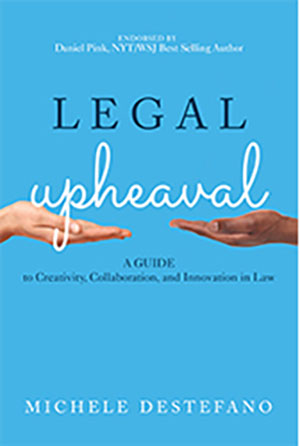 Q: What are some of the challenges you feel women face today?
Q: What are some of the challenges you feel women face today?
MD: Women face a ton of challenges right now And I don't want to provide a laundry list of them, nor do I want to touch on the challenges created by our current political atmosphere. So, I’ll focus on the one that seems to have always been there and may not be solvable and that is the challenge of being a working mom and doing both well i.e., the work and the mom-ing. Anne-Marie slaughter wrote an article a few years ago about how tough it is to have it all. And it resonated with me. I have 3 kids now at ages 20, 19, and 14 years old. Although I know they are really, really proud of me and especially LawWithoutWalls, they also remember the soccer games I missed, the times that I was curt because I was stressed, the too-many-evenings where I had my computer open while I was with them. I know that I couldn't have built my career without sacrificing some of those times, yet it's so sad to me that I had to and that I couldn’t figure out how to do both really well at the same time.
Five Things About Michele DeStefano
1. If you could talk to one famous person past or present, who would it be and why?
Mary Ann Evans (aka George Eilliot): My dream (from as early as I can remember, as early as 7 years old) was to be a famous poet and a book author. I wrote tons and tons of poems throughout my childhood (and still do actually). I published my first poem when I was 14 years old. It was called Heartbroken Teen. I sent it to a popular teen magazine called Young Miss and they paid me $25 to publish it. I was over the moon. Coming from public school, I wasn’t that exposed to great literature. At Dartmouth, I fell in love with English Lit and most especially DH Lawrence and George Eliot. The Rainbow and Middlemarch changed my world in so many ways. And I thought it was so very smart (and also so very sad) that Mary Ann Evans wrote under a male pseudonym. She wasn’t to be stopped and she had so much great things to say. I haven't given up that dream of writing a really great book of fiction. I have started it in fact. And its title is Goodbye Cookie Monster, and no, it is not a children’s book and it is not about Sesame Street either. Maybe if I could meet Mary Ann Evans, I’d find the time to get to it and finish writing it.
2. Favorite dessert?
My favorite dessert of all time is an Italian dish that my great grandmother made up called Acasada. It's my favorite for three reasons. First, it reminds me of my father (who dies of muscular dystrophy 21 years ago). My great grandmother created Acasada for him. The story goes: my dad didn’t like the traditional Italian ricotta-cheese pie because it wasn't sweet enough. So great grandma Rose added vanilla, cinnamon, and a few chocolate chips. Second, it’s actually healthy. It's low fat. The pie only has 3 eggs and one cup of sugar, no oil or preservatives and tons of calcium. Third, the coolest thing about Acasada is all of my kids love it too. There is not ONE other food that all three of my children agree upon—other than my Italian sauce of course!
3. If you could go back in time, what year would you travel to and why?
I don't want to go back in time ever. I've never been the type of person who wants to go backwards. I am an onwards, upwards, pick yourself up, do the next best thing, kind of person. So, going backwards is counter intuitive to me. I am always thinking about all the things I still want to do in this world like I want to relearn Spanish again. I want to get certified as a scrum master. I want to get my PhD in Sociology. I want to run a new type of law school. I want to write that book. There are so many things I want to do in the future, I don't have the time to go back in time
4. What app can’t you live without?
I'd have to say the Spotify App is the App I can’t live without because music is a really huge part of my life. I play music every day and in every part of my life. I play music to work-out. I play music when I cook. I play music to relate to kids. I play music to get in the mood to write. I play music as I build my online course content. I even play music for every Civil Procedure class to to help my students remember the content and why we're studying. I’m fairly certain I couldn’t live without music and the Spotify app gives it to me every which way, my way and new ways, and wherever I am at.
5. What would you sing at Karaoke night?
Well that's an easy question: I just mentioned how much I love music. So, it would most definitely have to be “I Love Rock ‘N Roll” by Joan Jett & The Blackhearts. Not only is it in my singing “key” but it is also one of the songs that I used to sing with my kids on the Wii when they were young. More than that, it is the song that was playing the first time I fell in love. That song will always remind me of my high school boyfriend (still a close friend today). Joan Jett was singing that song during our very first moment and it reminds me of how important it is to have love in our lives and to feel “alive.”

